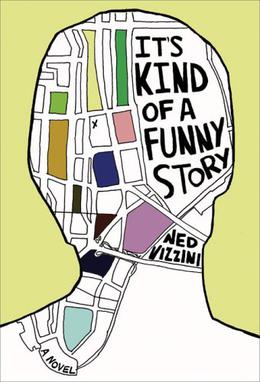I hate hype, usually because I just can't get behind the thing that everybody else is so jazzed about, and this book was a really great example of why.
Let's make one thing clear from the outset: a lot of people like this book. Like, enough to make it into a movie with some of the brightest and shiniest young things on the scene in starring roles. A lot of people think this book is thrilling, adventurous, and dystopian enough to rival The Hunger Games. I am not one of those people. I am not one of those people at all.
The Maze Runner, written by James Dashner, follows the story of a young boy named Thomas, who wakes up in a strange place with no memory of who he is, except for his name, and the vague familiar feeling that he has been in this place before. "This place" turns out to be an idyllic scope of green at the middle of a winding and unsolvable maze, home to terrifying creatures... and an all-knowing entity pulling the strings. Will he and his new compatriots ever escape?
Alright, let me just explain why I didn't like it too much, before everyone gets all upset with me: some of the most particular sources of pain for me, when trying to get through the novel, was the pacing (which, when something is lauded as the "Next Best Thing" in YA, better be wound tighter than the strings on a violin). Instead, I found it to be tedious. It was dystopian, which obviously involves a bit of world-building to make a complete picture, but where the novel tried to avoid info-dumping, it did so in an obtuse and deliberately confusing way, where even moments that were built to give clarity instead just emphasized the rest of the bare-bones plot structure. It didn't feel like there was some big conspiracy waiting to be unraveled, it seemed more like Dashner sent in a book proposal to his publisher, only to realize he didn't have a full story yet, and tried to string things together as he went along.
Also, I'm down for any kind of maze or labyrinth you can throw at me; it makes for some interesting mythology - when you're getting Greek about it - Harry Potter had one, and I'm always down for David Bowie in high-waisted leggings. However, The Maze Runner makes an interesting concept dull by making a maze, sure, but not making it worth traveling.
Even the only things that really peaked my interest in the duration of the book - the weird telepathy some of the Gladers shared, the mysterious Changing - weren't fully fleshed out or explained, which is probably why they're being scrapped for the big-screen adaptation (sorry to you fans so pumped for the movie, but that's not the only discrepancy).
Still, just because I thought it was a bad book doesn't necessarily mean it was bad fashion. Here's a look inspired by the Grievers, the treacherous monsters that roam the Maze during the night, and whose stinging needles embedded in their furry, twisting bodies will cause death to the Gladers they come in contact with. (Great fashion inspiration, I know, but it's Fall, and I need a lot of black and fur in my wardrobe right now...)










